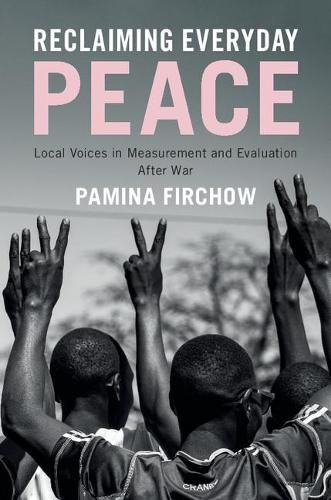Readings Newsletter
Become a Readings Member to make your shopping experience even easier.
Sign in or sign up for free!
You’re not far away from qualifying for FREE standard shipping within Australia
You’ve qualified for FREE standard shipping within Australia
The cart is loading…






Bringing armed conflicts to an end is difficult; restoring a lasting peace can be considerably harder. Reclaiming Everyday Peace addresses the effectiveness and impact of local level interventions on communities affected by war. Using an innovative methodology to generate participatory numbers, Pamina Firchow finds that communities saturated with external interventions after war do not have substantive higher levels of peacefulness according to community-defined indicators of peace than those with lower levels of interventions. These findings suggest that current international peacebuilding efforts are not very effective at achieving peace by local standards because disproportionate attention is paid to reconstruction, governance and development assistance with little attention paid to community ties and healing. Firchow argues that a more bottom up approach to measuring the effectiveness of peacebuilding is required. By finding ways to effectively communicate local community needs and priorities to the international community, efforts to create an atmosphere for an enduring peace are possible.
$9.00 standard shipping within Australia
FREE standard shipping within Australia for orders over $100.00
Express & International shipping calculated at checkout
Bringing armed conflicts to an end is difficult; restoring a lasting peace can be considerably harder. Reclaiming Everyday Peace addresses the effectiveness and impact of local level interventions on communities affected by war. Using an innovative methodology to generate participatory numbers, Pamina Firchow finds that communities saturated with external interventions after war do not have substantive higher levels of peacefulness according to community-defined indicators of peace than those with lower levels of interventions. These findings suggest that current international peacebuilding efforts are not very effective at achieving peace by local standards because disproportionate attention is paid to reconstruction, governance and development assistance with little attention paid to community ties and healing. Firchow argues that a more bottom up approach to measuring the effectiveness of peacebuilding is required. By finding ways to effectively communicate local community needs and priorities to the international community, efforts to create an atmosphere for an enduring peace are possible.